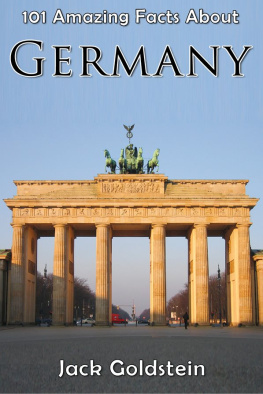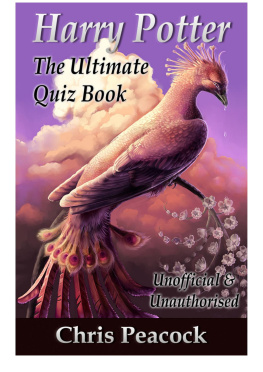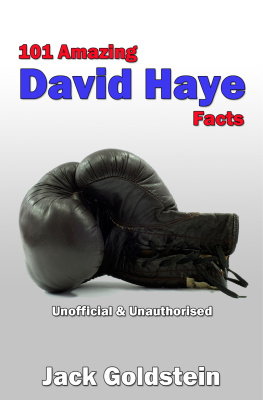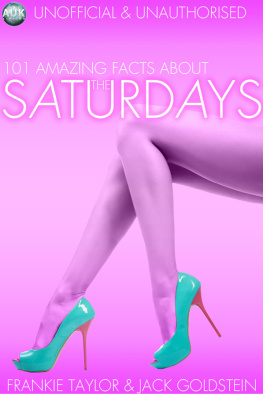Title Page
101 AMAZING FACTS ABOUT INDIA
Jack Goldstein
Publisher Information
Published in 2013 by
Andrews UK Limited
www.andrewsuk.com
The right of Jack Goldstein to be identified as the Author of this Work has been asserted by him in accordance with the Copyright, Designs and Patents Act 1998
Copyright 2013 Jack Goldstein
All rights reserved. No part of this publication may be reproduced, stored in a retrieval system, or transmitted, in any form or by any means without the prior written permission of the publisher, nor be otherwise circulated in any form of binding or cover other than that in which it is published and without a similar condition being imposed on the subsequent purchaser. Any person who does so may be liable to criminal prosecution and civil claims for damages.
Disclaimer: All facts presented in this title were gained from common and reputable sources in print and on the internet. If any detail within this title is found to be incorrect, the author will be happy to publish a corrected version.
Introduction
In this amazing eBook you can find more than one hundred facts about the country of India. Separated into sections such as its geography, its landmarks, famous Indian figures from history and many more you will find some fascinating information inside!
Whether you are planning on visiting India, working on a geography project or just want to know more about this beautiful country, this is an excellent addition to your bookshelf. Find the information you need, fast!
Follow Jack Goldstein on Twitter @GoldsteinBooks
Visit Goldstein Books at www.jackgoldsteinbooks.com
Key Facts and Figures
- India is the second most populated country in the world, only behind China.
- The country shares land borders with Bangladesh, Bhutan, Burma, China, Nepal and Pakistan.
- Four of the worlds major religions originated from India - Buddhism, Hinduism, Jainism and Sikhism.
- India has the third largest standing army in the world.
- The country boasts the worlds tenth largest economy.
- The capital of India is New Delhi.
- Modern India was once part of the British Empire, but gained independence in 1947 and became the country we know today.
- The country has a population of over 1.2 billion.
- The currency used is the Indian rupee.
- The country has a GDP of around 310 trillion rupees - at the time of writing that is about 4.7 trillion US dollars.
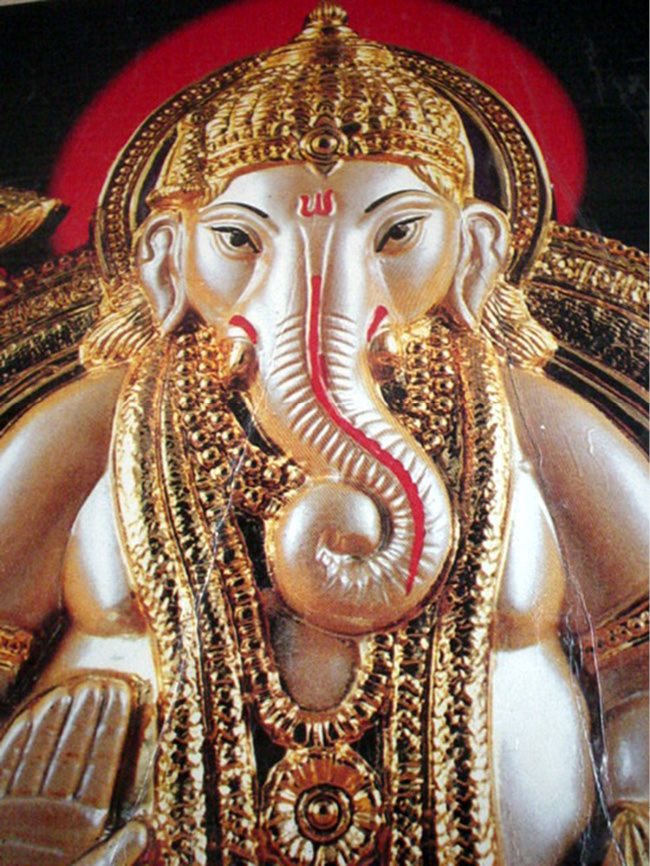
The Hindu God Ganesha
General Facts
- India is home to an incredible number of languages, and there is no single official one used everywhere. Hindi is very popular as is English, however when travelling the country you will hear Tamil, Urdu, Gujurati, Bengali and countless others.
- A huge number of people in the country speak multiple languages and drift effortlessly between one and another.
- India as a country is exceptionally diverse - from language to culture, food and geography you will find a new experience with every step you take.
- India is one of the nations at the forefront of technology, and the knowledge of the Indian IT experts is sought the world over.
- At the time of writing, over half of the worlds outsourced IT services actually come from India.
- It is traditional to eat many dishes in India without cutlery, often using Roti or Chapati bread instead.
- The Indian flag has three colours - Saffron, representing courage and sacrifice, white which indicates truth, peace and purity, and green which shows the countrys prosperity. The symbol in the middle of the flag, the Ashoka Chakra (a wheel with 24 spokes) represents righteousness.
- The Sarnath Lion is the national symbol of India - four lions stood back to back, symbolising courage, confidence and strength.
- The peacock is the countrys national bird, and one can see them roaming free across the entire country - including in its many cities!
- In some parts of India it is considered a sign of disrespect for a woman to say their husbands name aloud!
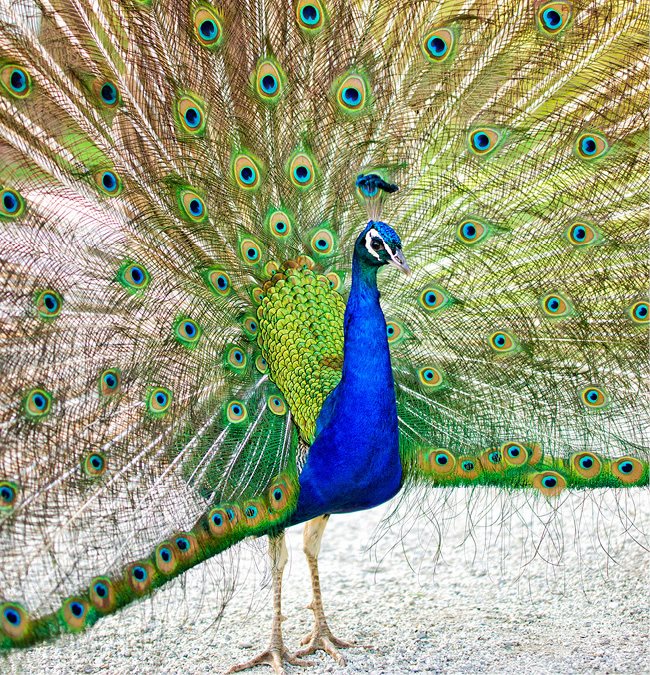
A peacock, the national bird of India
Landmarks to Visit
- The Taj Mahal - mausoleum built by emperor Shah Jahan for his wife Mumtaz Mahal.
- Lal Qila (The Red Fort) - 17 th century fort built by emperor Shah Jahan.
- Harmandir Sahib (The Golden Temple) - One of the most important sites of the Sikh religion.
- Govind Dev Ji - Hindu temple dedicated to Lord Krishna.
- Humayuns Tomb - Emperor Humayuns resting place, beautifully decorated both inside and out.
- Hampi - village which was the centre of culture for Hindus in the fourteenth century - make sure to visit the impressive Virupaksha Temple.
- Ghats of Varanasi - A multitude of steps leading into the stunning Ganges river.
- The Lotus Temple - built in 1986 it is seen as one of the worlds most beautiful pieces of modern architecture.
- The India Gate - the countrys national monument, built in memory of Indias fallen soldiers during the first world war.
- Qutub Minar - the tallest minar in India; building work started on this tower in the 12 th century and it is still impressive to this day.
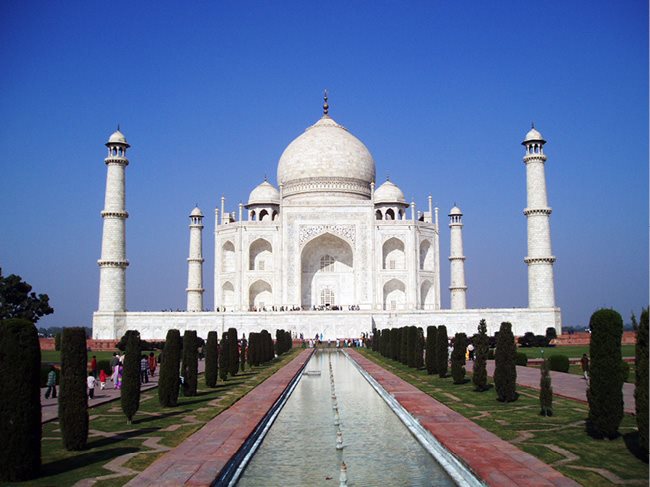
The Taj Mahal
History
- Anthropologists believe that humans first settled in India around 30,000 years ago.
- In Sanskrit, the ancient language of India, the countrys name is Bharat Ganarajya, and many people today refer to their homeland as Bharat. The modern name, India, refers to the Indus river where the countrys earliest settlers made their homes.
- Taxila is home to one of the worlds first universities, which was formed in 700 BC.
- The earliest cotton in the world was made in India, and was popular across the world. Even Roman emperors wore the fabric which they (rather beautifully) called woven winds.
- Before the industrial revolution, India was responsible for an amazing third of the worlds entire GDP.
- For the last few thousand years, India has been ruled by various groups, from regional Hindu leaders to widespread Muslim rule during the middle ages, powerful empires and today by a democratic system which boasts the highest voting turnout in the world by number of people.
- Britain had a strong presence in India since the early 18 th century, and forcibly took over the running of the country in 1858. The period from then until the country won its independence back in 1947 was known as the British raj, a Hindi word for rule.
- When the British rule ended, the country was actually split in two, creating both the India we know today and Pakistan. Politically there is still today a great deal of tension between these two nations.
- The tale of the Koh-I-Noor diamond is rich with legend; it was once the largest diamond in the world and passed between various rulers in India - however during British rule in India it was given to Queen Victoria by the Maharaja Duleep Singh. It weighs an amazing 105.6 carats.
- Even today a social stratification known as the Caste system is present in India. In the main, people are defined either in one of four main categories known as varnas - Brahmins, Kshatriyas, Vaishyas, and Shudras or as an untouchable, someone who would be ostracized by all castes.
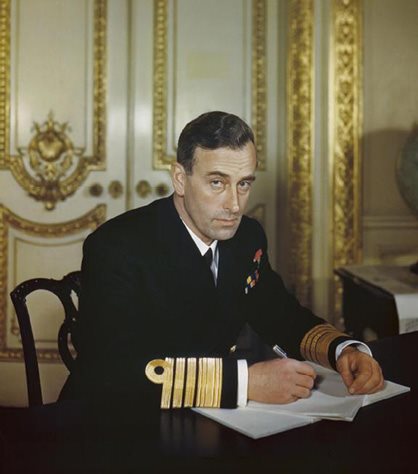
Next page


